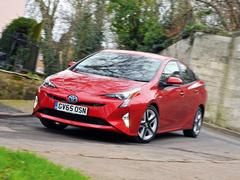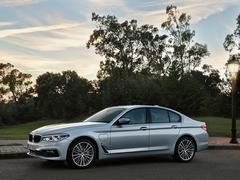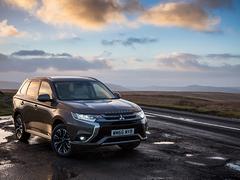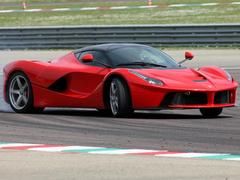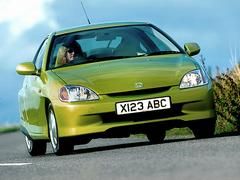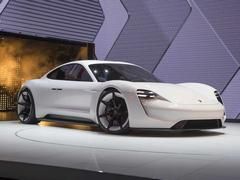Hybrids are the 'next diesel': Tell Me I'm Wrong
Why a 680hp Porsche symbolises all that's wrong with hybrids
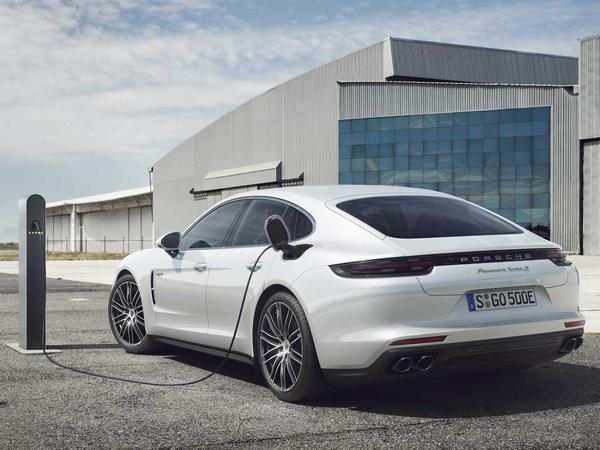
VW's scandal exposed the lengths manufacturers are prepared to go to in order to hit - or appear to hit - the targets given them by legislators. And also our willingness to believe the hype of it being about saving the planet when the real inspirations are, respectively, selling new cars and saving a few quid off our tax bills. Meanwhile governments remain in control of an endlessly adjustable tax threshold that can either throw incentives to certain voters or penalise others as their needs require.
For me Porsche's Panamera Turbo S E-Hybrid truly exposes the hybrid myth and extremes both manufacturers and customers will go to in the name of expediency. Because, let's face it, neither party is motivated by a desire to save the planet.
The joke is on...
I'm sure there will be amusement value in driving a 680hp Panamera. But at what point does adding electric motors and batteries to a luxury saloon ALREADY packing 550hp from a 4.0-litre internal combustion engine possibly equate to a sensible allocation of resources? Because, what, the ability to plug your twin-turbo V8 Porsche into the mains, allowing it to be dragged along under electric power for a few miles, buys you lifetime membership of Greenpeace? Through gritted teeth I'd call it four-wheeled virtue signalling, much as I hate the term.
Just as generations of diesel rep saloons have been relentlessly engineered to limbo under ever lower legislative bars for favourable numbers on business users' payslips these latest hybrids seem breathtakingly cynical. How many of those Mitsubishi Outlander PHEVs are bought for anything other than 'scoring' 41g/km, 166mpg and therefore slashing your tax liability? I'm guessing it wasn't for the looks or handling, that's for sure. And yet there it is, Britain's best-selling PHEV according to the Mitsubishi UK website.
If Porsche were just a little more honest about it and presented the Turbo S E-Hybrid as simply the fastest Panamera you can buy I'd feel a little more comfortable. After all, is spending £137,140 on an electrically-assisted Panamera because it scores 97.4mpg and 66g/km really more eco conscious than spending £115,100 on one with just the V8 and 30mpg and 214g/km on the same test cycle? Is £22K, all that additional complexity and another 315kg on a car 190mph already weighing over 2,000kg really worth a power-to-weight gain of just 20hp per tonne?
Number crunching
The answer will be yes if the E-Hybrid will, in effect, give you both bragging rights AND pay for itself through Benefit In Kind, Congestion Charge exemption and incentivised parking schemes that favour plug-in vehicles. Whether they're Twizys or 680hp Porsches. The Panamera is just an extreme example - versions of these calculations are going on up and down the land as execs ditch the diesels and switch to petrol hybrids because the tax rules encourage them to do so. Why wouldn't Porsche build a car to satisfy this market? Why wouldn't we buy it and enjoy the sense we'd beaten the system? "Courage changes everything" as Porsche's strapline for the Panamera goes...
This is why the LaFerrari is the one out of the so-called hypercar holy trinity I'm most comfortable with. All exploited electricity to boost the power of already awesome internal combustion engines. But only Ferrari was honest in the motivation for the application of the technology - namely more speed. It could have turbocharged the car to the same ends. But in this context electrical assistance meant it could maintain its brand values of screaming naturally-aspirated power at the heart of the beast. And a sell-through from KERS technology in F1. Why pretend it was about anything else?
And that's what I'd like to see from hybrids. A more honest use of electric power to fill the holes in the power bands of internal combustion engines and make them operate more efficiently. Rid them of the need to power the car for a token electric only range for impressive CO2 numbers and you don't need a huge battery, weight can be kept down and the petrol engine downsized. It's like a smarter version of forced induction, letting us keep the character of our high-rev zingers while giving them a helping hand to deal with their peakiness. And a true way to bridge the gap between dependence on internal combustion and the inevitable electric future.
Motivating factors
Honda got it right with its Integrated Motor Assist system in the 'mild' hybrids it has built since its first Insight. There was an interesting car, built to be light, aerodynamically efficient and as fast as a larger engined car through clever application of technology. Not a bloated, over-complex tax-dodger.
As the whole diesel thing has proven, the way cars are legislated provides very little motivation for free-thinking on solving the actual problems. And instead diverts creative energy to hitting meaningless targets. Again, look at Honda and the way it responded to California's emissions crisis with the CVCC engine. While everyone else strangled huge, inefficient V8s with smog gear and turned them into underpowered gas guzzlers it built a small engine that burnt its fuel more efficiently.
If we're going to make cars move solely under electric power make them electric only. With both product and investment in infrastructure that actually works for its customers Tesla continues to embarrass the mainstream manufacturers. What, for instance, if Porsche had put all the considerable development resource and expertise required to build a car like the Turbo S E-Hybrid into the production Mission E? Sure, it wouldn't have it in showrooms now. But it would have brought it one step closer. Alternatively what if the 911 Carreras hadn't gained controversial turbos but instead a mild hybrid boost that preserved the high-revving naturally-aspirated character at the top end, augmented with an electrically assisted mid-range? They tried it with the GT3 R Hybrid race car after all. I'll work on the assumption the answer is because they wouldn't have hit the CO2 numbers required to sell the cars under current tax rules, rather than build a car that would be both faster, cleaner and more characterful.
I hope we'll look back on these cars with a sense of embarrassment, as we do those monstrously over-engined 'smog beaters' of the 70s. There are smart ways to integrate electric power into our mobility needs. I'm just not convinced a 680hp Porsche Panamera counts as one of them.
[Sources: Honda]
Gassing Station | General Gassing | Top of Page | What's New | My Stuff

